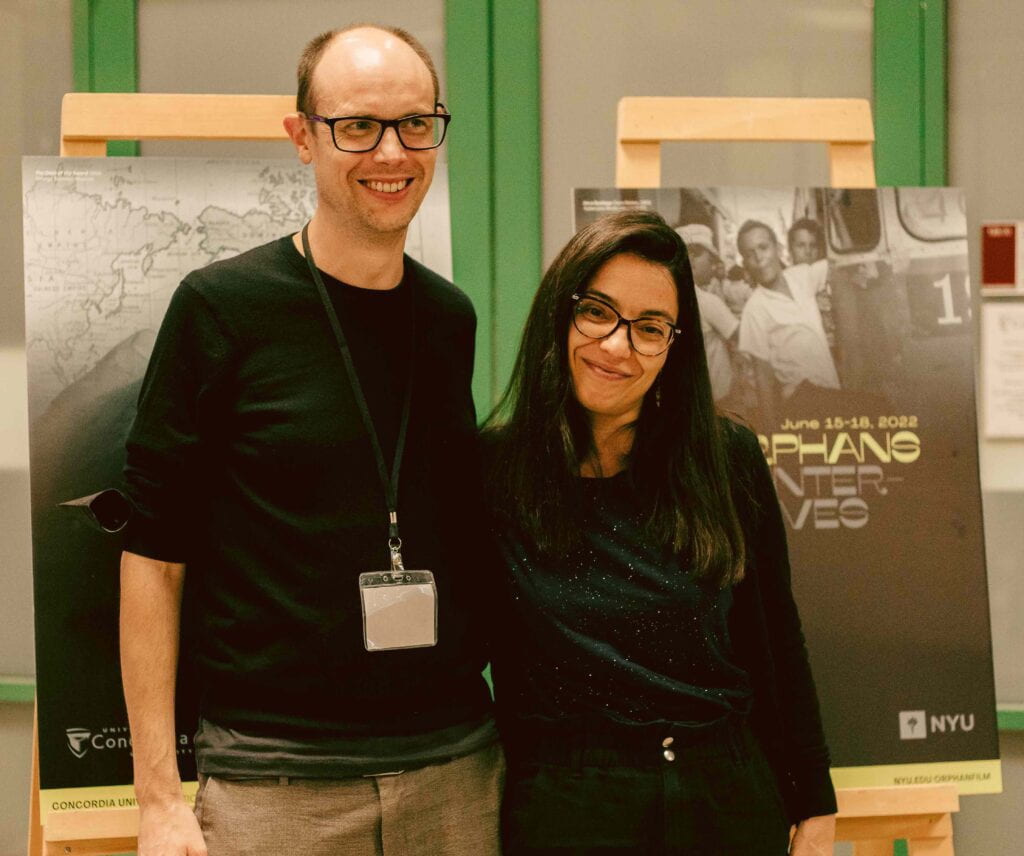“A Call to Emancipation: Liberating Discourses in Mexican and Spanish Student Films of the 1950s.” Recorded at Concordia University, June 17, 2022. These were the first two of three presentations for an Orphan Film Symposium session called Cine útil (a nod to the 2011 anthology Useful Cinema, edited by our hosts Charles Acland and Haidee Wasson, and which contains essays by 5 scholars also participating in the symposium this year: Zoë Druick, Gregory Waller, Joseph Clark, Charles Tepperman, and Michael Zryd ).
David M.J. Wood introduces a ten-minute film produced in Mexico and performs live English translation of the recorded Spanish-language narration. Sonia García López discusses the seventeen-minute Quince minutos. Pianist José María Serralde Ruiz provided live accompaniment to the silent student film and spoke afterward. Quince minutos was not webcast or recorded. Access via Filmoteca Española in Madrid.
Click to enlarge or view at vimeo.com/741491470.
Abstract
This presentation brings together two orphan films from distinct educational contexts in 1950s Mexico and Spain that articulate contrasting discourses of liberation from the perspectives of gender, ethnicity, and citizenship. Eres libre (You Are Free, 1951) is a pedagogical documentary short produced collaboratively at CREFAL (Regional Centre for Fundamental Education in Latin America) in Pátzcuaro, Mexico, by mentors, Latin American technical students, and inhabitants of local indigenous communities. It forms part of a small collection conserved at CREFAL’s library of little-known educational pictures, made as part of a postwar drive by UNESCO and the postrevolutionary Mexican government to promote audiovisual technologies as a tool for literacy and democratization. Both emancipatory and paternalistic, Eres libre calls on Purépecha villagers to embrace liberal-democratic values of individual rights and freedom while overlooking the actual insertion of indigenous communities in the contemporary political sphere.
Quince minutos (Fifteen Minutes, 1955) is a short student film directed by María Elisa Corona, one of the few women to study at Spain’s Instituto de Investigaciones y Experiencias Cinematográficas (Institute for Film Research and Practice), created in 1947 under Franco’s dictatorship, and closed in 1976, one year after Franco’s death. Only two women graduated as film directors at the IIEC in its three-decade lifespan. Corona never did, and her name is absent from Spanish film history. Nevertheless, she not only challenged the social codes that prevented women from participating in the public sphere, but also articulated a “female gaze” in Quince minutos.
Both films were produced alongside or by historical subjects frequently marginalized in the film industry and film history. Eres libre is a collaborative short film that directly interpellates indigenous peasants: a historically underrepresented or misrepresented constituency in Mexican visual culture and cinema. Although in part this film perpetuates certain paternalistic caricatures of indigeneity, its collaborative aspect and emancipatory ideology situate it ambiguously with respect to cultural stereotypes. In Quince minutos, a woman student not only assumes the role of director — usually reserved for men in patriarchal societies — but also, by means of camerawork and editing, constitutes herself as a desiring subject longing for the male body. In this way, Corona subverts the expected social roles that men and women are subject to. She articulates a way of looking and feeling pleasure that was completely absent from the Spanish screens.
Both films were produced and circulated in educational contexts outside the commercial mainstream. Although these works were not abandoned by the individuals and institutions that made them, and they are currently preserved at important archives in each country, they remain neglected by film history.
- Eres libre (J. Ramiro Girón, Richard Kent Jones and Alfonso Robles Landi, Mexico, 1951). 16mm, b/w, sound, 10 mins. In Spanish. Digital video copy courtesy of CREFAL.
- Quince minutos (María Elisa Corona, 1955). 16mm, b/w, silent, 17 mins. Digital video copy courtesy of Filmoteca Española.
Bios
David M.J. Wood works at the Institute of Aesthetic Research at UNAM, Mexico City. His research interests include Latin American documentary and experimental film, militant cinema, and the cultural history of film archives. He is the author of ‘El espectador pensante: el cine de Jorge Sanjinés y el Grupo Ukamau’ (2017).
Sonia García López (Senior Lecturer, Universidad Carlos III de Madrid) is a film scholar and author of the books Spain is Us: La guerra civil española en el cine del Popular Front, 1936-1939 (2013) and El cuerpo y la voz de Margarita Alexandre (2016). Her research interests include documentary, avant-garde film, archive history and theory, and feminist film historiography.
See also Presentación libro “El cuerpo y la voz de Margarita Alexandre”, de Sonia García López: Cine Doré, Filmoteca Española (published on the YouTube channel of Alfonso López Yepes, June 18, 2016). 26 min. Margarita Alexandre Labarga (1923-2015 ) film producer, director, and actress in Spain during the Franco era and in Cuba in the first decade of the revolution.

